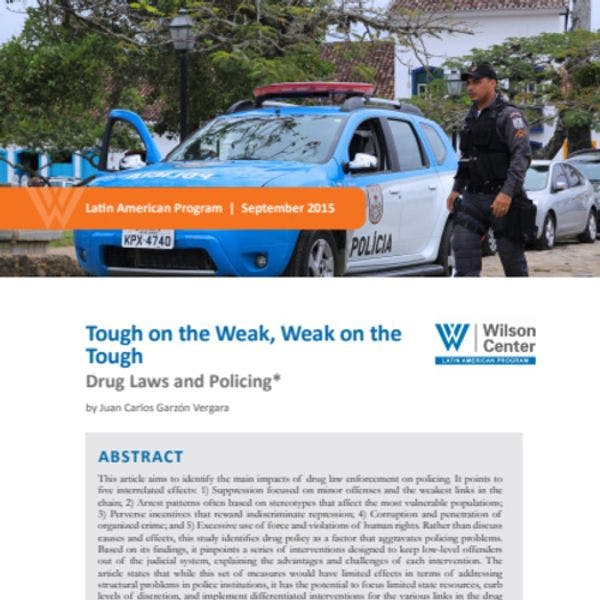Tough on the weak, weak on the tough - Drug laws and policing
From the standpoint of public health, the criminalization of drug use and its suppression by the police not only has produced a disproportionate response; it has also reduced the possibility of providing the treatment needed for people with serious addiction problems, as limited resources are concentrated on implementing punitive measures and criminalizing users. There is sufficient evidence to state that under prohibition, drug users have become more vulnerable while prevention and treatment capacities have fallen short.
According to the World Drug Report 2015, produced by the United Nations Office on Drugs and Crime (UNODC), only one out of six problem drug users has access to some type of treatment. Recognizing this reality, this article aims to identify the main impacts of drug law enforcement on policing. Basing its analysis on a review of available national studies and the systematization of quantitative information, it makes some recommendations that may help lead to changes in police forces and in drug policy in general.
This study does not attempt to identify causes and effects but rather to lay out explicit correlations between drug law enforcement and its negative impacts on policing.
Keep up-to-date with drug policy developments by subscribing to the IDPC Monthly Alert.
Downloads
Regions
Related Profiles
- Wilson Center
